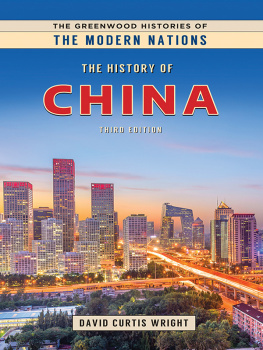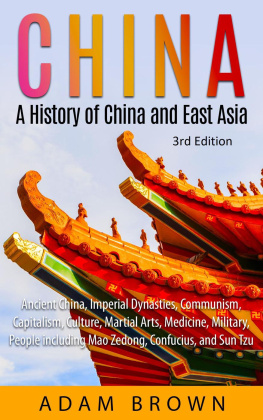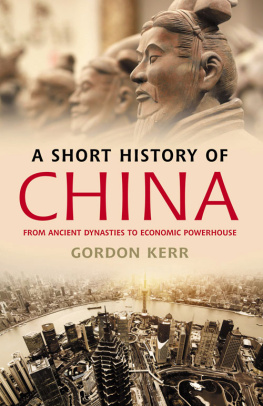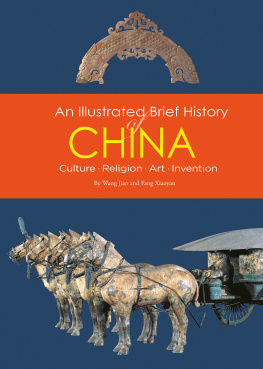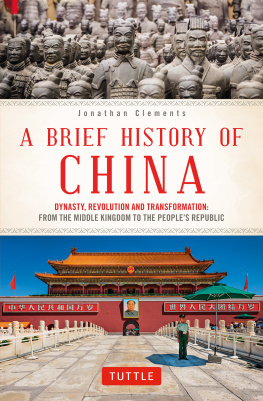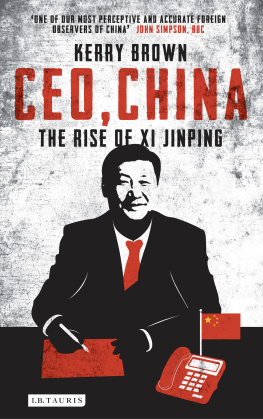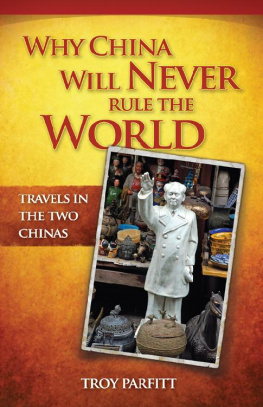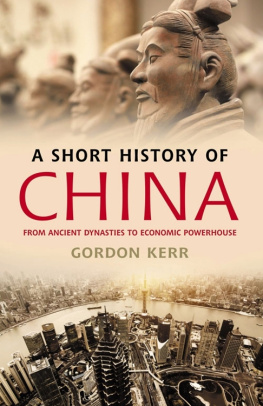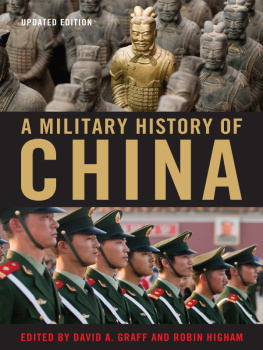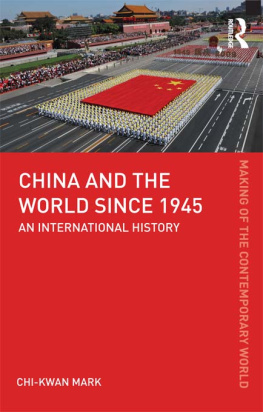Copyright 2020 by ABC-CLIO, LLC
All rights reserved. No part of this publication may be reproduced, stored in a retrieval system, or transmitted, in any form or by any means, electronic, mechanical, photocopying, recording, or otherwise, except for the inclusion of brief quotations in a review, without prior permission in writing from the publisher.
Library of Congress Cataloging-in-Publication Data
Names: Wright, David Curtis, 1960- author.
Title: The history of China / David Curtis Wright.
Description: Third edition. | Santa Barbara, California : Greenwood, an imprint of ABC-CLIO, LLC, [2020] | Series: The Greenwood histories of the modern nations | Includes bibliographical references and index.
Identifiers: LCCN 2020038066 (print) | LCCN 2020038067 (ebook) | ISBN 9781440874390 (print) | ISBN 9781440874406 (ebook)
Subjects: LCSH: ChinaHistory.
Classification: LCC DS735.A2 W74 2020 (print) | LCC DS735.A2 (ebook) | DDC 951dc23
LC record available at https://lccn.loc.gov/2020038066
LC ebook record available at https://lccn.loc.gov/2020038067
ISBN: 978-1-4408-7439-0 (print)
978-1-4408-7440-6 (ebook)
24 23 22 21 20 1 2 3 4 5
This book is also available as an eBook.
Greenwood
An Imprint of ABC-CLIO, LLC
ABC-CLIO, LLC
147 Castilian Drive
Santa Barbara, California 93117
www.abc-clio.com
This book is printed on acid-free paper 
Manufactured in the United States of America
T O THE M EMORY OF M Y F ATHER
P ROF . H. C URTIS W RIGHT
(FEBRUARY 18, 1928JANUARY 20, 2012)
B ELIEVER , S CHOLAR , C LASSICS L IBRARIAN , T HEOLOGIAN , F ISHERMAN
Contents
The Greenwood Histories of the Modern Nations series is intended to provide students and interested laypeople with up-to-date, concise, and analytical histories of many of the nations of the contemporary world. Not since the 1960s has there been a systematic attempt to publish a series of national histories, and as series editors, we believe that this series will prove to be a valuable contribution to our understanding of other countries in our increasingly interdependent world.
At the end of the 1960s, the Cold War was an accepted reality of global politics. The process of decolonization was still in progress, the idea of a unified Europe with a single currency was unheard of, the United States was mired in a war in Vietnam, and the economic boom in Asia was still years in the future. Richard Nixon was president of the United States, Mao Tse-tung (not yet Mao Zedong) ruled China, Leonid Brezhnev guided the Soviet Union, and Harold Wilson was prime minister of the United Kingdom. Authoritarian dictators still controlled most of Latin America, the Middle East was reeling in the wake of the Six-Day War, and Shah Mohammad Reza Pahlavi was at the height of his power in Iran.
Since then, the Cold War has ended, the Soviet Union has vanished, leaving 15 independent republics in its wake, the advent of the computer age has radically transformed global communications, the rising demand for oil makes the Middle East still a dangerous flash point, and the rise of new economic powers like the Peoples Republic of China and India threatens to bring about a new world order. All of these developments have had a dramatic impact on the recent history of every nation of the world.
For this series, which was launched in 1998, we first selected nations whose political, economic, and socio-cultural affairs marked them as among the most important of our time.

